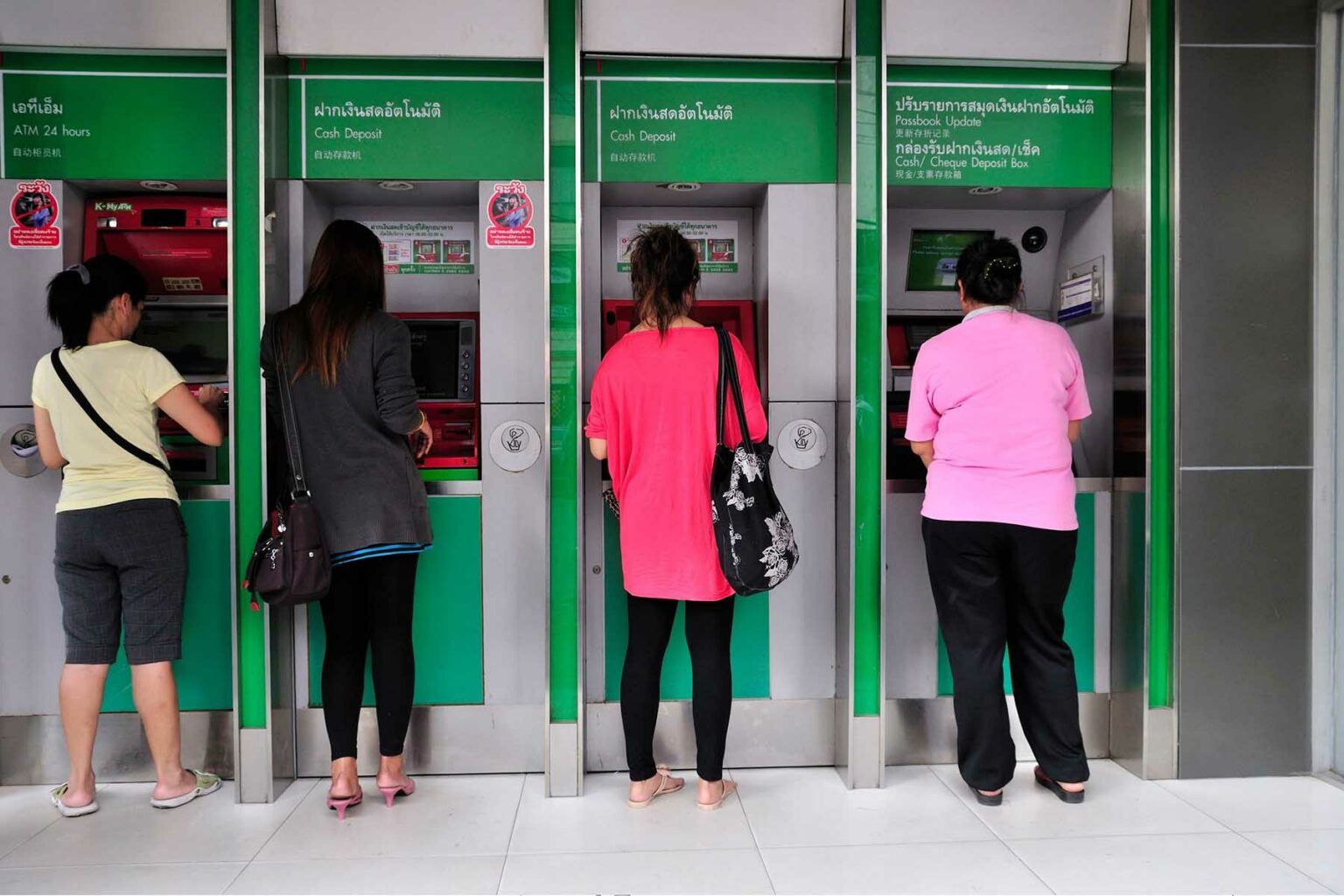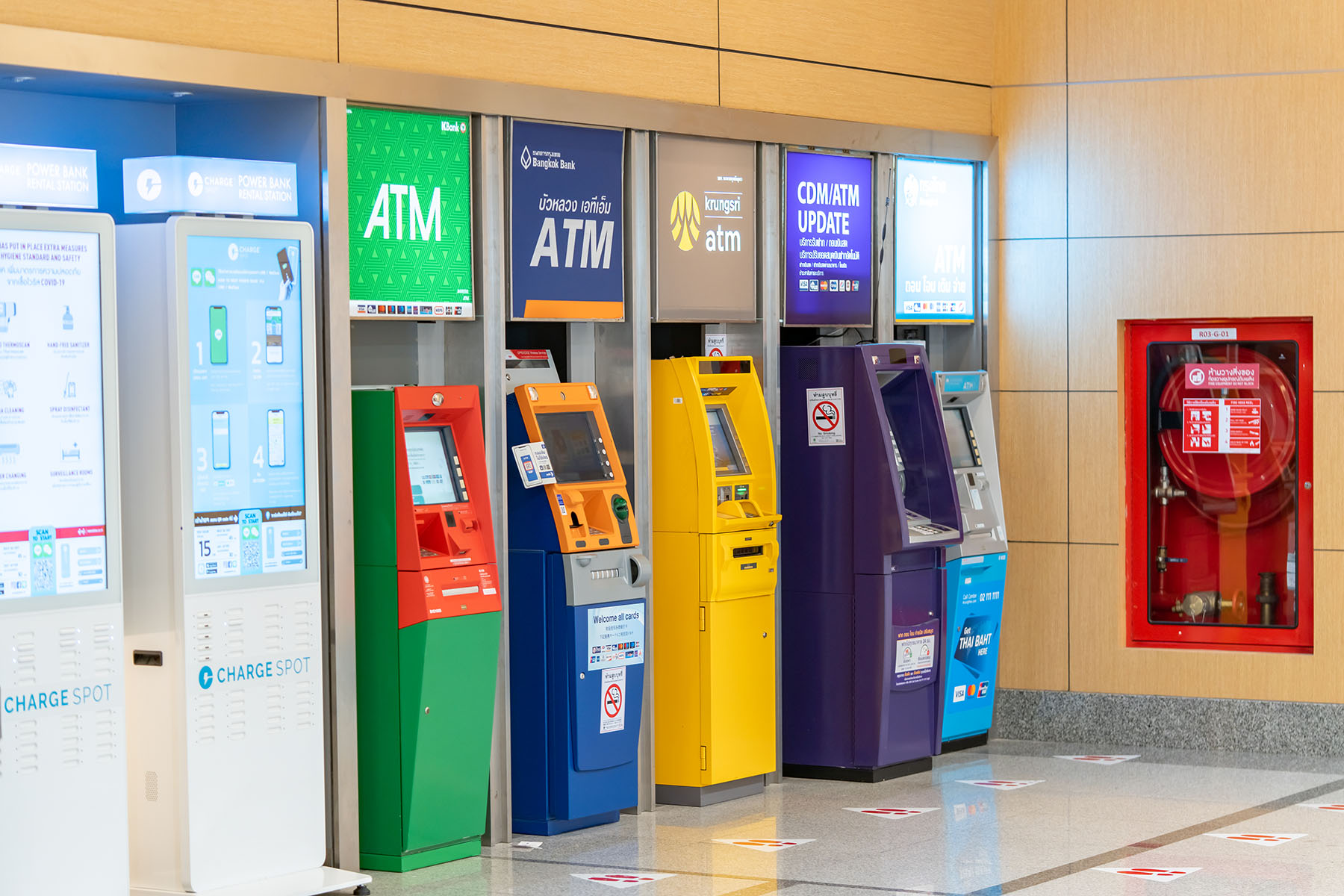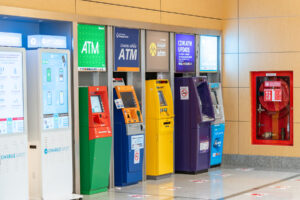As an expat, navigating the banking system abroad is usually one of the first challenges you’ll have to deal with. You might prefer to look for cross-border banking solutions, particularly if you’re going to be moving around a lot. However, if you plan to stay in Thailand, getting to grips with the local money system is a must.
Learn how to master the Thai banking system in the following sections:
- The banking system in Thailand
- What currency does Thailand use?
- What kind of banks are there in Thailand?
- How to open a bank account in Thailand?
- Payment methods in Thailand
- What are banking fees in Thailand?
- What are offshore banking options?
- Does Thailand have ethical banks?
- Banking security and fraud in Thailand
- How to report a lost or stolen bank card
- Complaints about banking in Thailand
- Useful resources
The banking system in Thailand
Thailand has around 30 registered domestic and foreign banks. The government has been heavily involved in the banking sector since the 1997 Asian financial crisis. It controls six of the country’s 11 domestic banks and strictly regulates the conditions in which international banks can operate.
For example, there’s a limit on the number of expat management staff foreign banks can employ, with the government strongly preferring local employees.
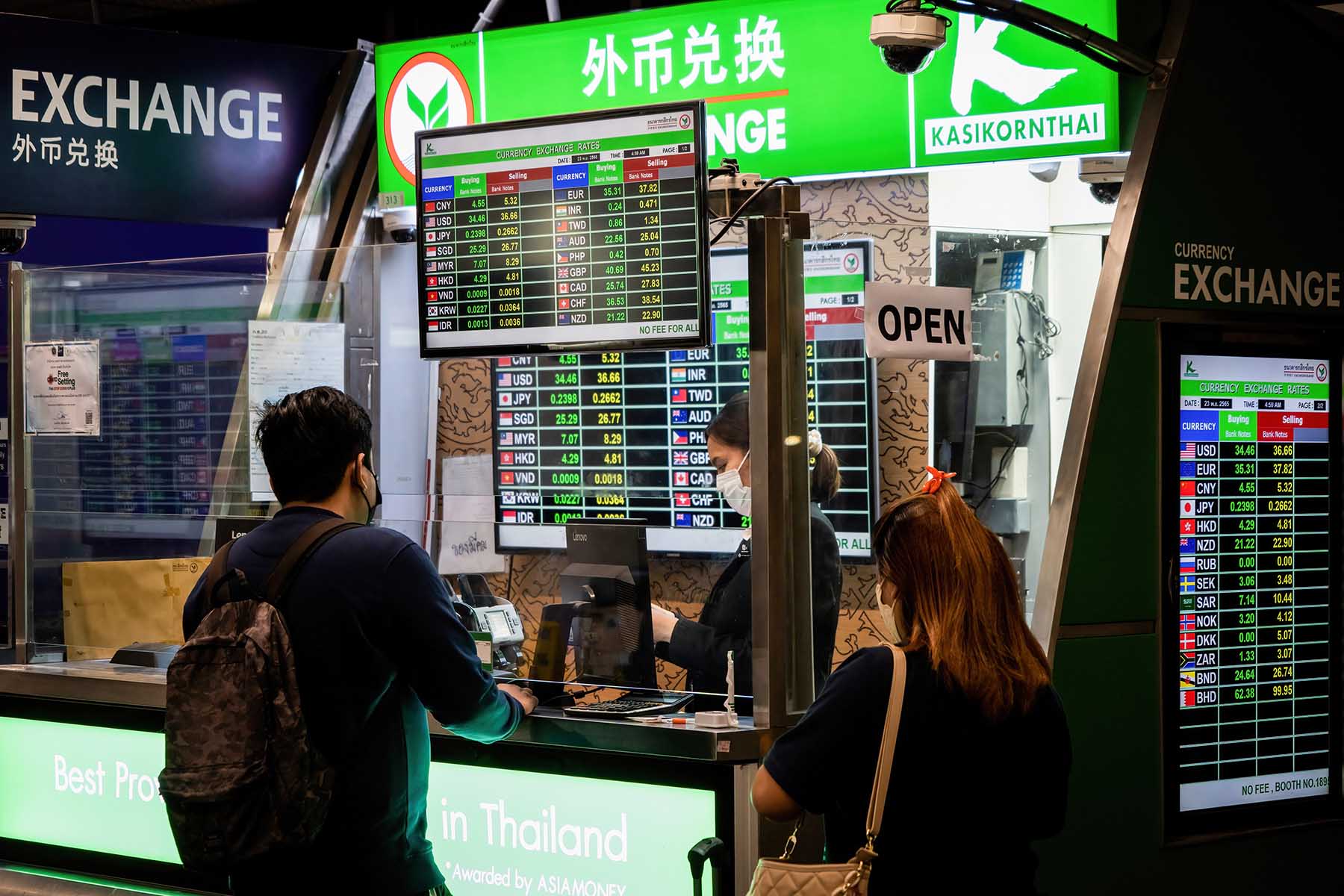
The Bank of Thailand (BOT – ธนาคารแห่งประเทศไทย) is in charge of overseeing the financial sector. Its Financial Institutions Policy Committee (FIPC) regulates banks and other financial institutions.
However, residents will often find that individual banks – and even individual branches – apply the regulations in their own way. That means the same question might get a different response in two branches of the same bank. This often causes frustration and confusion.
Expats might feel that banking in Thailand is less modern and straightforward than in other countries. That is because it has yet to embrace digital banking fully, and many services are only available to in-person customers who go to a branch. Some international websites also don’t allow you to use a Thai debit card to purchase online.
What currency does Thailand use?
Thailand uses the baht (บาท, baat) as its currency. Its symbol is ฿ and has the international abbreviation of THB. One baht can be divided into 100 satangs (สตางค์ – cents), a term which is also used to refer to money in general. The baht does not have a fixed exchange rate with any other currency and has been in use since the late 19th century.
The BOT is responsible for issuing banknotes, implementing monetary policies, and promoting economic and price stability. The most commonly used bill is the ฿100, but several other denominations are available, including ฿20, ฿50, ฿100, ฿500, and ฿1,000.
You can use ฿1,000 bills in most transactions. However, street food vendors, taxi drivers, and tuk-tuk drivers might refuse to accept them. Therefore, you should make sure you carry some smaller alternatives.
Coins are available in denominations of ฿1, ฿2, ฿5, and ฿10. Some coins are for small denominations, like 1, 5, 10, 25, and 50 satang. The 1 and 5 satang coins are rarely used, as they have such low value.
You can check the current conversion rates for the baht at websites like xe.com.
Cash machines and ATMs
Every major bank has plenty of ATMs located around the country. In some rural areas or outlying islands, cash machines are few and far between. If you plan to visit rural Thailand, be sure to bring enough money with you. You can find a cash machine near you using this Global ATM Finder.
Some banks will charge a fee for using the ATM. These costs can vary depending on the bank; for example, they can be based on currency exchange commission fees, a flat monthly fee, or a charge per transaction. You can usually expect to pay around ฿150 to ฿300 per transaction. Others might give you a certain number of free transactions per month.
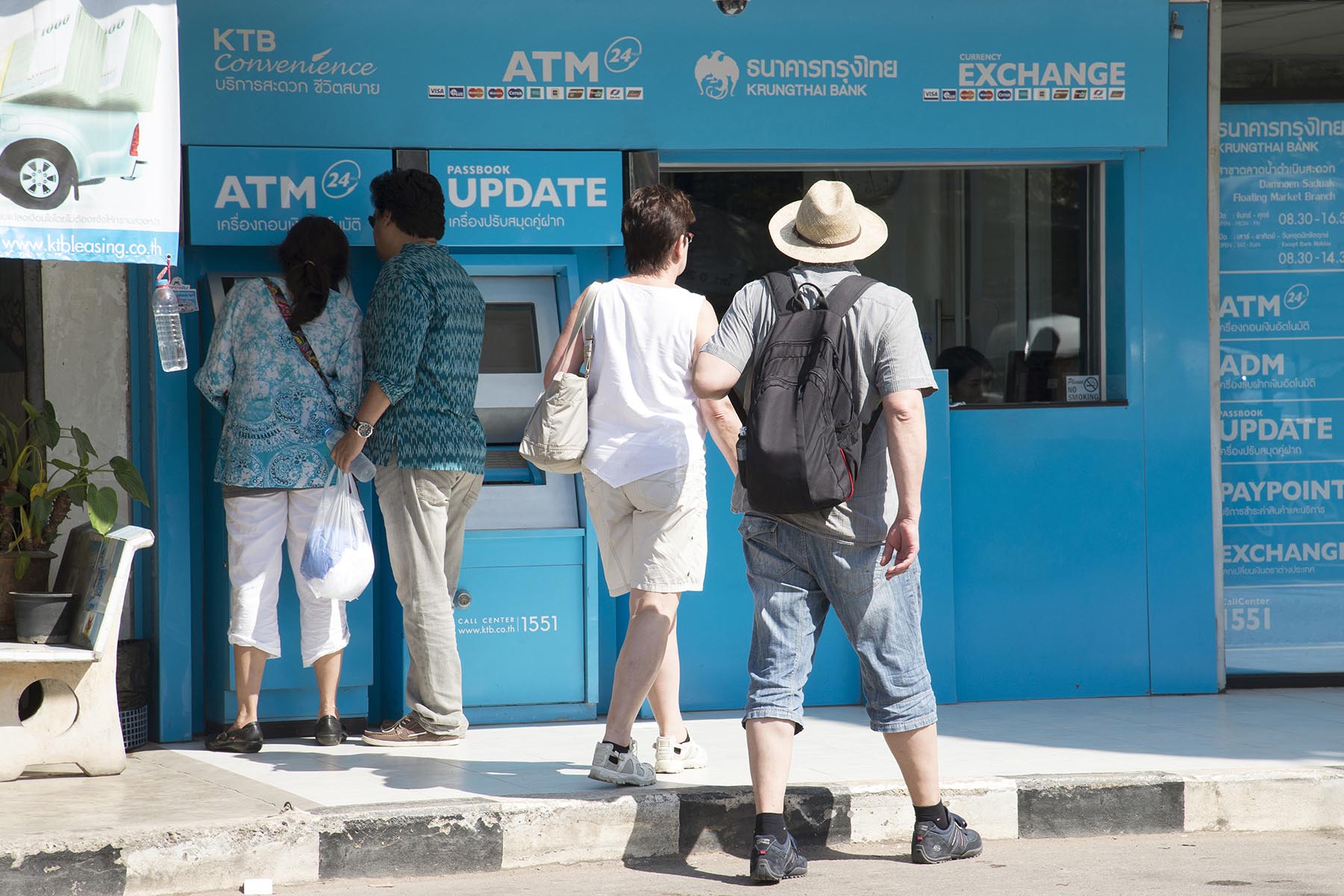
While Thai ATMs usually accept international MasterCard and Visa cards, other cards may not work. You may have to pay an extra fee for currency conversion, as well as any charges issued by your home bank. Most ATMs have a withdrawal limit (ขีดจำกัดวงเงินสำหรับการถอน) of ฿20,000 or less, though your own bank may impose a lower limit.
The ATM usually displays the fee and prompts you to confirm before dispensing funds. If you find an ATM that charges ฿150, it is worth remembering the bank for future withdrawals.
Take care when using a Thai ATM. Many give you your money before returning your card, while cash machines in the Global North do this the other way around. Sometimes, this will lead to you taking your cash, leaving, and forgetting your card. Your card may then be swallowed by the machine or, worse, get stolen.

Local expert
Jane Evans
Insider tip
At times, Thai ATMs may not be able to dispense overseas cash. In this case, you will see a message such as, ‘this transaction was not possible’, or ‘the corresponding bank is offline’. Do not be alarmed; it is likely a communication issue. On the other hand, it is important to inform your bank that you will be withdrawing funds from abroad before you leave. Otherwise, you may find that the fraud team has blocked your withdrawals.
One way of avoiding ATM fees is to transfer a larger amount directly from bank to bank via international transfer if you have a Thai bank account.
What kind of banks are there in Thailand?
Private banks
Thailand has several privately owned banks. They provide standard services, from basic matters like opening an account to more complicated issues such as mortgages and loans. Branches are usually open from Monday to Friday from 08:30 to 15:30, with shopping center branches opening from Monday to Sunday from 10:00 to 20:00.
Some of the largest private banks in Thailand include:
Public banks
There are six state-owned banks in Thailand, with each serving a specific purpose. For example, the Government Savings Bank (GSB – ธนาคารออมสิน) focuses on savings and loans, while the Government Housing Bank (GH Bank – ธนาคารอาคารสงเคราะห์) offers accessible mortgages to low-earners. The Islamic Bank of Thailand (iBank – ธนาคารอิสลามแห่งประเทศไทย) caters to the country’s small Muslim population and provides banking services following Sharia principles.
Other Thai government banks include:
- Bank for Agriculture and Agricultural Co-operatives (BAAC)
- Export-Import Bank of Thailand (EXIM)
- SME Development Bank of Thailand
International banks
International banks are often a popular choice for expats. They usually have better online banking facilities than local banks, and they may facilitate international transfers and payments.

The largest international banks in Thailand are Japanese, but there are other options as well (e.g., HSBC). US-based CitiBank, formerly one of Thailand’s most prominent international banks, announced its withdrawal from the country in 2022. The Singaporean United Overseas Bank (UOB) took over its operations. Many branches still have CitiBank branding, but this is set to change over the next several years.
The largest international banks in Thailand include:
Investment banks
Several well-known international investment banks operate in Thailand, including BNP Paribas, DB Thailand, and Bank of America (BOFA). While most investment banks only cater to corporate and institutional clients, some also welcome retail clients.
For example, TISCO (the first Thai investment bank) offers lending services to individuals and small businesses. It also provides wealth and asset management for high-net-worth individuals.
Digital banks
Thailand is still lagging behind many other countries when it comes to digital banking (ธนาคารดิจิทัล). There are currently no Thai online-only banks (although the BOT does plan to grant three virtual banking licenses in 2024). The country’s first digital banks should begin operating in 2025, bringing Thailand in line with neighboring tech-friendly countries such as Singapore and Malaysia.
Many expats enjoy the convenience of international digital banks, which usually offer favorable exchange rates and allow them to hold multiple currencies in a single account. They are particularly useful for frequent travelers or digital nomads. Digital banks operating in Thailand include:
What do Thai banking services cover?
Current accounts
In Thailand, a standard banking account is called a savings account (บัญชีออมทรัพย์, banchee om sap). This is the equivalent of a current or checking account in the Global North.
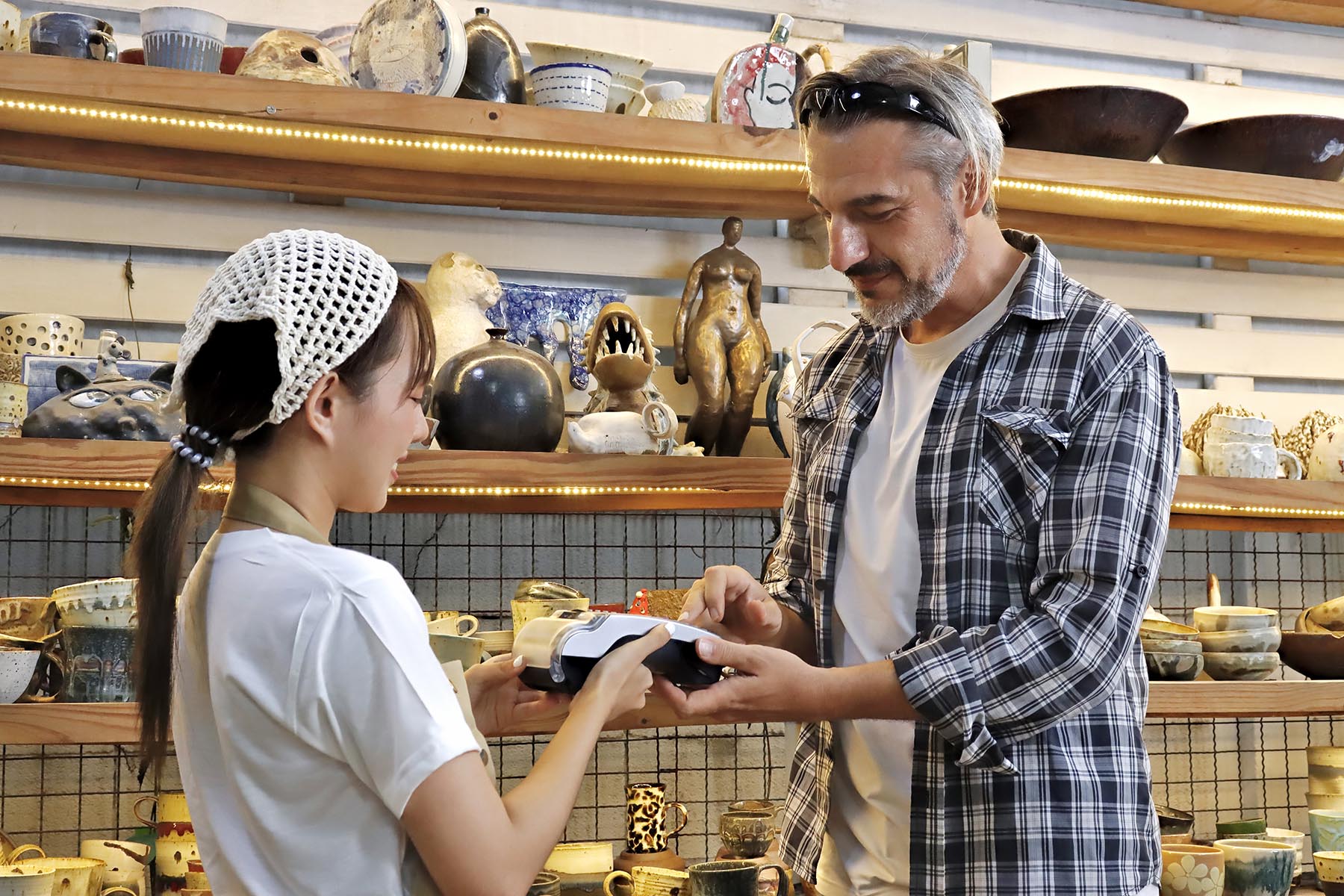
When you open an account, the bank will give you a debit card (บัตรเดบิต) and a passbook or bank book (สมุดบัญชีธนาคาร, or sometimes บุ๊คแบงก์). Although most countries in the Global North no longer use these, they are considered vital in Thailand and should be stored carefully.
You will need your bank book, passport, and work permit (if you own one) to serve as ID when doing business inside a Thai bank, and usually, you will need to go to the branch where you opened the account.
Loans and overdrafts
Money lending (สินเชื่อธนาคาร) is not a straightforward deal in Thailand. A bank might approve your request for a credit card, but this is unlikely when you are a new customer.
For a credit card or loan, you will usually need to show your work permit and bank statements (ใบแจ้งยอดธนาคาร). The longer you have worked in Thailand, the higher your chances of having your application approved. Similarly, it’ll help if you have been a customer of the bank for an extended period of time.
Mortgages
There are several regulations in place that affect expats seeking a mortgage (จำนอง, jam nong) in Thailand. For example, foreigners can only own 49% of a house or villa; the majority owner must be a Thai citizen. A condo may be 100% owned by a non-Thai as long as the building or project has not filled its 49% quota for foreign ownership. Interest rates are also usually higher for expats than for Thai nationals.
Mortgage applications usually require you to:
- Be married to a Thai citizen
- Have permanent residency
- Have worked in Thailand for at least a year
LGBTQ+ residents should be aware that same-sex marriage is newly legal in Thailand. As such, you can apply for a joint loan, but you may face some pushback in the process.
Savings and investments
The Thai government offers some tax incentives for savings and investments, which are particularly useful if you are planning to stay in the country for an extended period of time.
Your bank will allow you to open a Super Savings Fund (กองทุนเพื่อการออม – สสส – SSF). This lets you place up to 30% of your yearly income, which will then be excluded from your Thai income tax. However, you must keep the money invested for 10 years before withdrawing it, or you will face some hefty fees to pay.
Fixed-term accounts (บัญชีที่มีระยะเวลาคงที่) are another popular choice for savings, as they offer high interest rates. Banks will often give expat customers lower interest than Thai citizens, so be sure to ask for information before signing up.
Digital/online and mobile banking
Like elsewhere, online banking and apps are standard features of Thai banks. However, expats are often disappointed by the lack of functionality compared to other countries.

You’ll usually be able to pay your bills, view your statements, and make transfers online. Anything more complicated than that will require a trip to your local bank.
Commercial or business banking
Expats who start a business can open a business account (บัญชีธุรกิจ) in Thailand. Before settling on one bank, it’s worth visiting branches of a few different banks, as some limit the commercial services available to non-citizens.
Expat services
Some banks in Thailand offer favorable rates on international transfers. A few also allow customers to open foreign currency accounts, particularly in US dollars.
Keep in mind that there are reports of problems regarding these services. For example, the bank’s app may not support foreign currency accounts, so you’ll have to go to your bank in person whenever you want to make a payment or transfer. A better option may be to choose an international mobile bank for added ease and convenience.
How to open a bank account in Thailand?
Each bank in Thailand sets its own criteria for expats opening an account. Sometimes, two branches of the same bank will tell you a different thing. This experience can be frustrating, so it’s worth visiting various branches or asking around for advice.
Some banks ask for a work visa or student visa, while others allow you to open an account with just a tourist visa. You may be asked to show a lease or rental agreement as proof that you live in Thailand. Some banks also request a letter of reference from your embassy.
Most banks have a minimum deposit requirement to open an account, but it is usually relatively low (around ฿1,000 to ฿3,000).
Payment methods in Thailand
Cash
While digital payments are becoming more popular worldwide, cash (เงินสด, literally meaning fresh money) is still essential in Thailand. A 2022 BOT survey found that over 50% of Thais prefer using only cash for day-to-day payments.
Since COVID-19, many Thais have used QR payments or transfers via banking apps. Even small shops and food stalls accept this form of payment, with the exception of 7-Eleven convenience stores. You can ask for a QR code by saying, “skaen dai mai?” (สแกนได้ไหม, can I scan?)

Markets, small stores, cafes, and some restaurants will often insist on cash payments, so you can’t go card-only in Thailand.
Checks or cheques
Very few Thais have a checking (or chequing) account; checkbooks are a rare sight in the country, and not all Thai banks offer this type of account. A current account (บัญชีเงินฝากกระแสรายวัน) will usually come with a checkbook. In the unlikely event that someone pays you by check, it will usually take around five days to clear.
Debit cards
Most debit cards in Thailand are either Mastercard or Visa. Usually, a bank will issue a debit card as a standard service when you open a new account. They can be used to withdraw money from ATMs or to make purchases and are widely accepted (except by small vendors).
International websites often do not accept Thai debit cards. Some banks, however, offer customers the option of making a virtual card that can be used instead.
Credit cards
Only about 25% of the cards in circulation in Thailand are credit cards (บัตรเครดิต, bat credit). Expats often report difficulties when applying for one.
Direct debits and standing orders
Direct debits (บริการหักบัญชีอัตโนมัติ) are a common way of paying bills in Thailand. The process for setting one up will depend on your bank. While you may not be able to open a direct debit using your banking app, it might be possible to complete the process at an ATM. If not, you’ll have to visit your local branch.
Online and mobile payments
In 2016, the Thai government unveiled its National e-Payment Master Plan. Its main success was the introduction of PromptPay (พร้อมเพย์) via the Ministry of Finance (MOF) and the BOT. This online payment system offers instant, low-fee transactions and has become widely used. In fact, with 67 million customers in 2023, the vast majority of Thais have a PromptPay account.
To set up an account, you’ll need a Thai phone number or citizen ID. While other forms of online payments are available through mobile banking in Thailand, PromptPay is by far the market leader.
Local money transfers
Sometimes, it’s possible to transfer money using an ATM. However, depending on your bank, you may have to enter your branch. If you do, be sure to bring your bank book. The teller may or may not ask for it, but it’s always better to be safe than sorry.
A local money transfer (การโอนเงินในท้องถิ่น) will usually clear immediately if done via a banking app or ATM. Transfer fees are often lower using a cash machine rather than going into the branch.
International money transfers
An international money transfer (การโอนเงินระหว่างประเทศ) can take up to five working days. Before you can make a transfer, the bank may require that you register for their outward remittance service. This involves proving your source of income, usually with your work permit, contract, or pay slips. Thailand has stringent rules and limits regarding taking money ($50,000 US per year) out of the country.
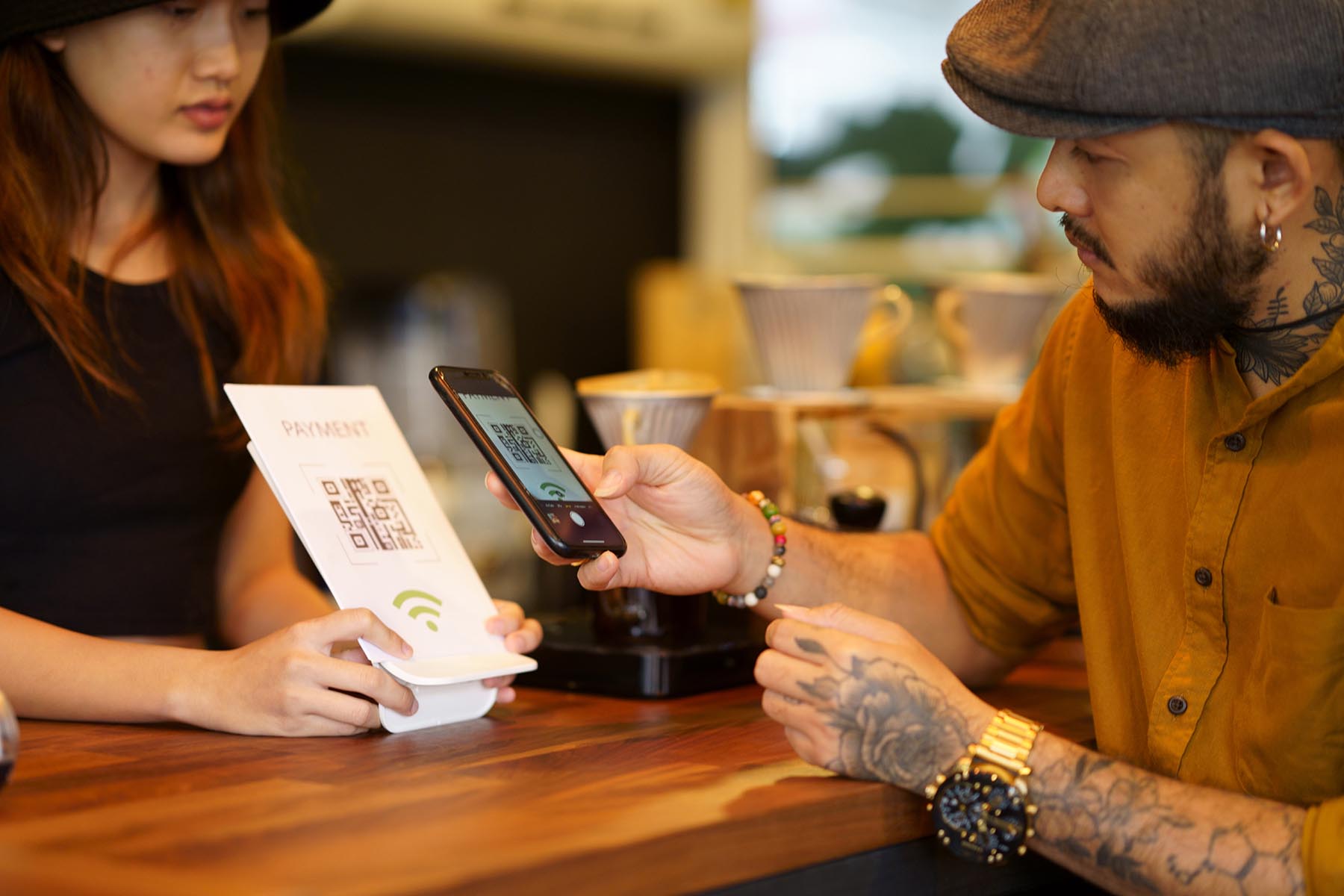
International money transfers in Thailand have a fixed fee, depending on the bank. It can vary significantly, from less than ฿500 to over ฿1000. As you’ll be paying the same costs regardless, it’s better to transfer large amounts of money if possible.
If you regularly make international money transfers, you might prefer to use a digital bank that facilitates the process.
What are banking fees in Thailand?
Banking fees in Thailand can quickly add up. ATM fees are usually ฿220 per withdrawal. As such, it’s often a good idea to withdraw larger amounts of money at a time. If you use a cash machine that does not belong to your bank’s network, there may be an additional charge of around ฿15. Certain accounts may also give you a number of free ATM transactions before fees apply (usually four or five per month).
To avoid these costs altogether, you can visit your local branch and withdraw money over the counter. However, this can take much longer than a simple ATM transaction.
You usually pay an issuing fee for a new debit card, varying from ฿50 to over ฿350. Debit cards also have an annual charge, which could be as low as ฿250 or as high as ฿700.
You’ll also incur costs when transferring money. These can vary significantly, depending on your bank. Many allow free money transfers to an account within the same bank but charge you for transfers to a different bank.
What are offshore banking options?
Thailand does not have a large offshore banking sector. However, non-resident accounts are available. These function similarly to resident accounts.
Problems may arise when you have a Thai account and want to pay money into a non-resident account. This is treated as an international transfer and requires extra information under Thailand’s anti-money laundering protocols. As such, you must provide supporting documentation such as contracts or invoices. To avoid this hassle, companies typically insist that their expat employees open a local bank account.
Does Thailand have ethical banks?
Sustainability and ethics have recently become key focal points for banks worldwide. Many Thai banks now offer eco-friendly policies. For example, Kasikorn Bank has a carbon-neutral certification and features in the 2023 Bloomberg Gender Equality Index.
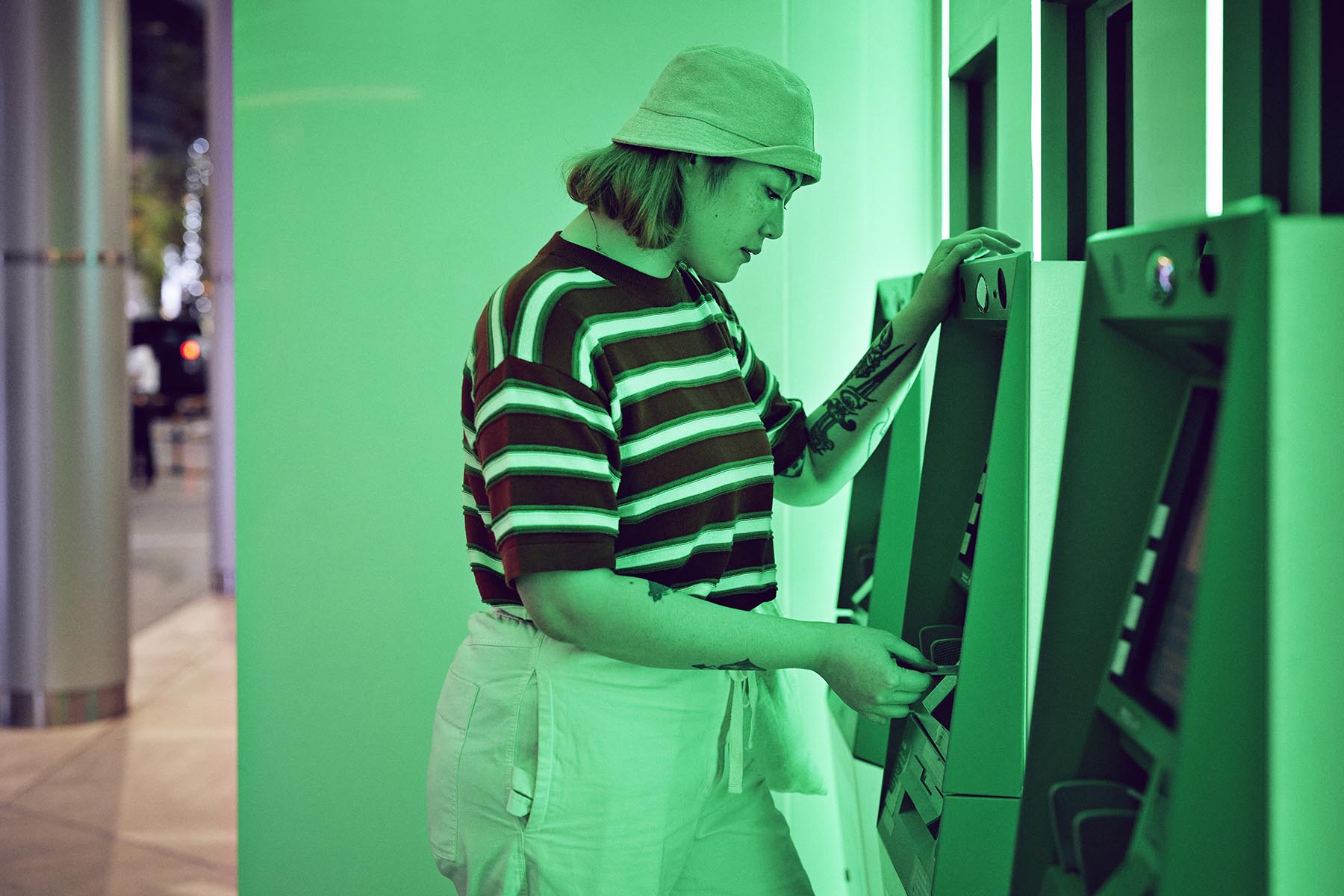
Bangkok Bank has taken steps to lower its carbon footprint and has a comprehensive Corporate Social Responsibility (CSR) policy. This includes promoting Thai arts and culture, offering educational opportunities to young people, and investing in the country’s agricultural sector and SMEs.
Banking security and fraud in Thailand
Thailand’s in-person banking sector relies on traditional fraud prevention. Customers may have to provide signatures more often than in other countries. They should also bring their passport and bank book whenever they visit a branch.
If you are worried about card cloning or ATM fraud, most banks allow you to use QR codes for card-free transactions. The country’s PromptPay system, which requires ID to use and is fully digital, is recommended to avoid fraud.
The Bank of Thailand is currently prioritizing anti-fraud tactics in mobile banking. For example, single transactions of over ฿50,000 and daily transactions totaling more than ฿200,000 now require biometric scans. If you suspect a case of online bank fraud (การหลอกลวงธนาคารออนไลน์), you can call your bank’s 24-hour hotline.
How to report a lost or stolen bank card
If your bank card is lost or stolen, the first step is to report it to your bank. Be sure to save your bank’s card hotline on your phone. Generally, you’ll first have to call them to declare it’s missing and to cancel it. Afterward, you can go to a branch with your passport and bank book to request a new card.
Complaints about banking in Thailand
If you are unhappy with your banking service, you can start by complaining to the bank itself. To escalate matters, you can take your concerns to the BOT, which regulates the sector. Expats may also use the Complaint Center for Foreign Investors if necessary. Complaints can be made verbally or in writing. You can also request that your identity be kept confidential.
